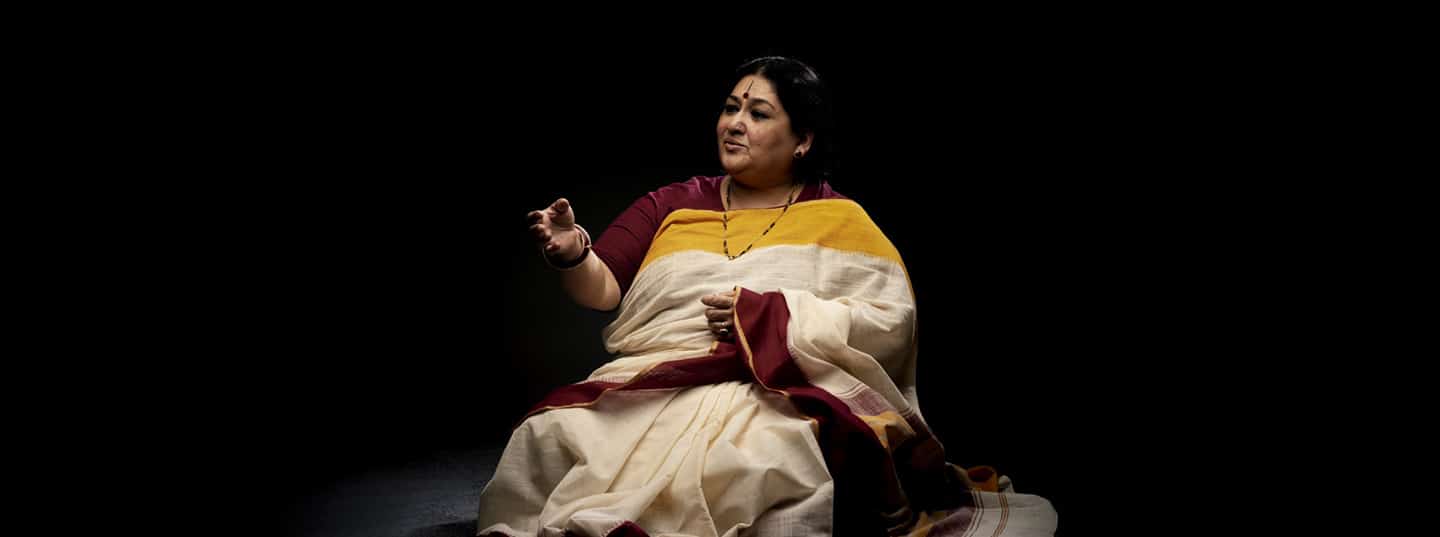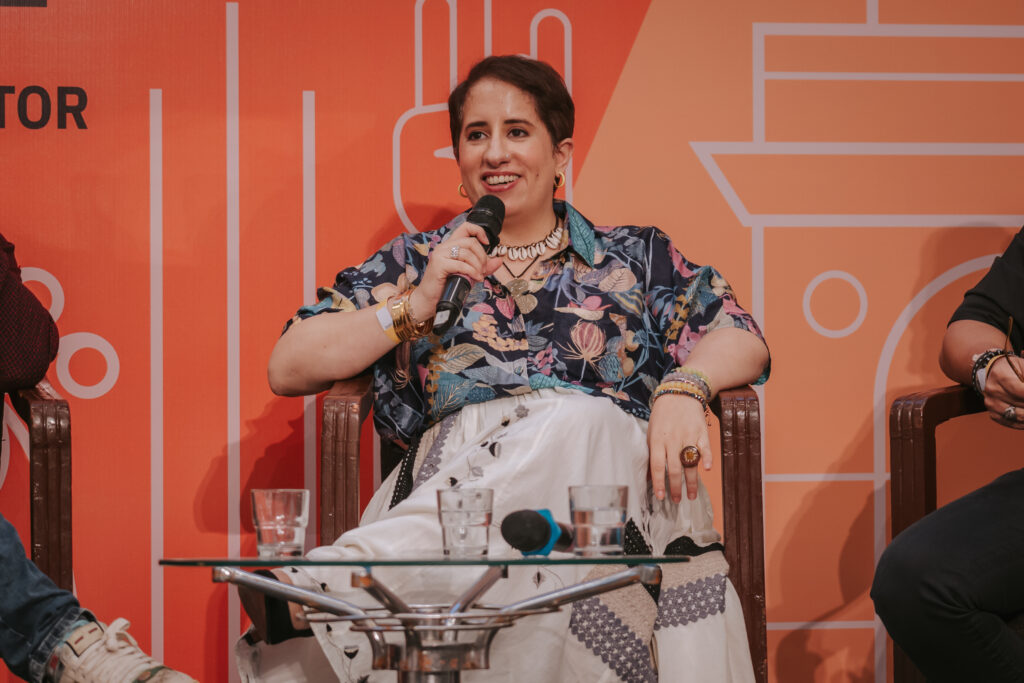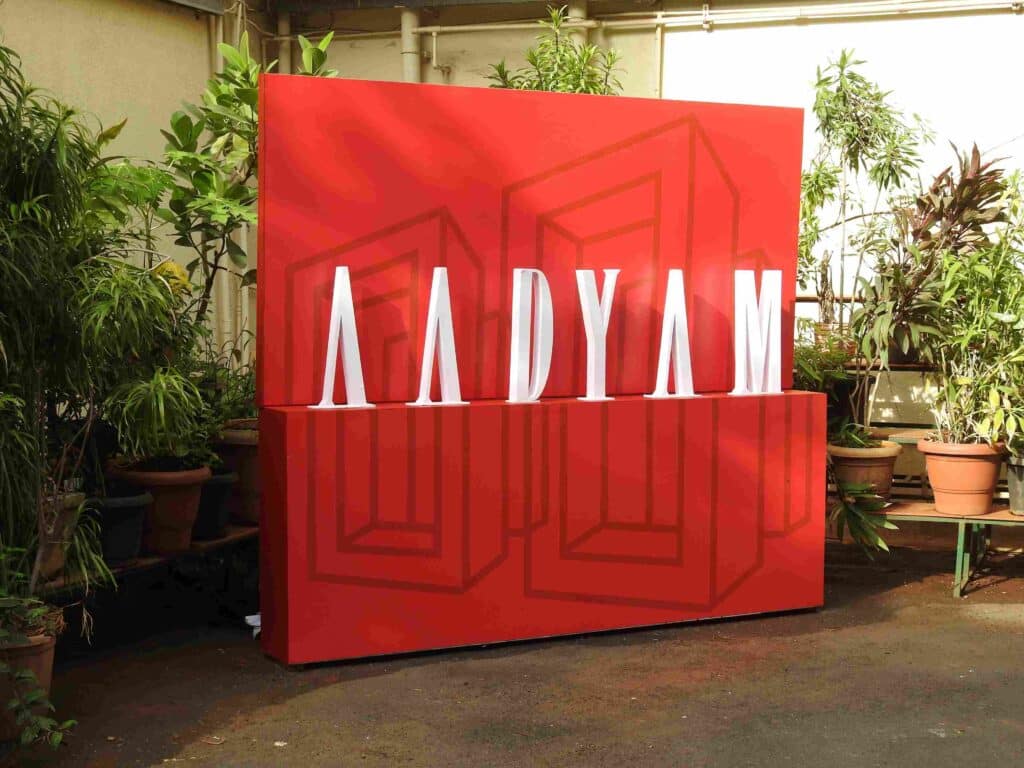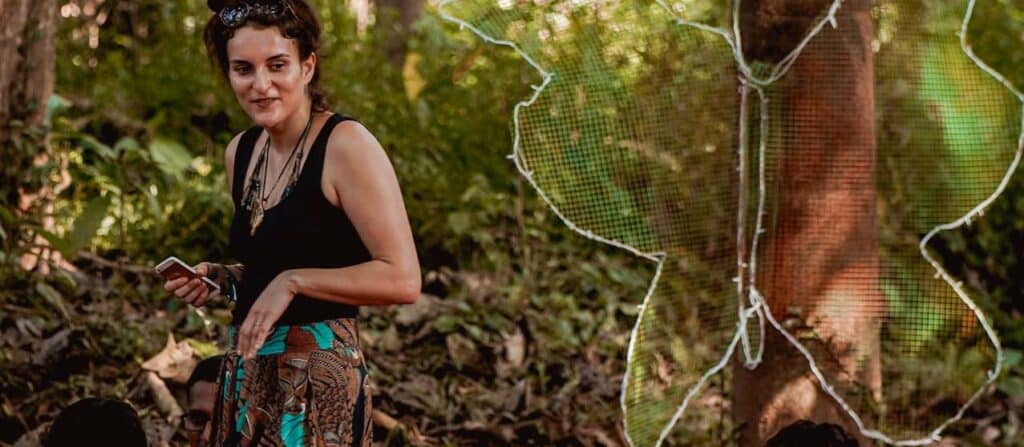A Shubha Mudgal concert is not just a performance, it’s a masterclass. The Hindustani classical singer and composer brings an exceptional range and depth of knowledge to everything she does.
Mudgal, who was a visiting research professor for traditional music at Goa University and taught a course on Hindustani music with her husband, tabla player Aneesh Pradhan at Ashoka University, Sonipat, is currently a visiting scholar at the Goa Institute of Management. Apart from the several research projects on the history of Indian music Pradhan and she have worked on individually and jointly, they have been the music curators of the Serendipity Arts Festival and have conceptualised the long-running play Stories in a Song, a collection of vignettes that tie together Indian history, literature and theatre.
Next week, Mudgal will treat audiences to another deep dive into the varied world of Hindustani classic music when she presents ‘Women, Sexuality, and Song’, the opening concert of Mukta: The Voices of Women Today, a new women-led Indian classical music festival by the National Centre for the Performing Arts in Mumbai.
She will sing “a selection of verses penned by great masters of Indian poetry” that “convey stories of women, some full of sensuality and unabashed eroticism, others of the terrible, tragic challenges and stigmas”. Accompanying her will be Pradhan on tabla, and Sudhir Nayak on the harmonium. We interviewed Mudgal about her recital, the status of women in the Hindustani classical music eco-system, and her opinion about women-only festivals. Edited excerpts:
Could you tell us about the pieces you will be performing and the poets whose works you will be showcasing? How did you pick and choose the ones to celebrate?
I will be singing about women portrayed as goddesses, yoginis, youthful nayikas/female protagonists with immense beauty, ageing women whose hair is slowly turning silver, and women who face social stigma for one or the other reason. The lyrics for these compositions are from diverse sources, from classical Hindi literature as well as from folk repertoire from the Hindi heartland. I have also included some selections from ritikaal poetry dating from the 17th to 19th centuries approximately and known for its focus on the erotic. I also hope to present a sample of Rekhti poetry, a hybrid form of Urdu poetry that focuses on female sexuality.
Given the abundance of content available, it will not be possible for me to present a comprehensive selection at the Mukta festival. But I would like to present a diverse selection, both in terms of literary choices as well as music-related choices that are guiding my decisions regarding raag, taal, etc. I will be presenting verses by Dev (1673 -1768 approx), Bihari Lal Chaube (1595-1663), Surati Mishra (1683) and Insha Allah Khan (1752-1817).
Many of the compositions I will present have been written by male poets and composers writing about women. There is, of course, a common and well-established tradition in India where male poets have written in the feminine voice. But I am also trying to include some selections from the works of women poets. However, I would have to say that often, if one were not to be aware of the identity of the poets, it would be near impossible to conclude the gender of the poet-composer based merely on the writing. In short, women poets do not sound tangibly different from male poets writing in the feminine voice.
Do women performers have equal footing in the Hindustani classical music festival ecosystem?
I would not be able to generalise and give a definitive answer to this question. Some iconic women performers in the past have demanded due respect and established themselves as divas in a male-dominated ecosystem. Take the examples of the legendary Gauhar Jan and the great Kesarbai Kerkar. Both were star performers who not only performed on their own terms but could take on the mightiest in the land if they wished. Other women performers have not paid any attention to the issue of gender equality and do not feel it is an issue of any significance. But by and large, it has been and remains a male-dominated ecosystem.
How have things changed in the past few decades?
Once again, it is difficult for me to comment because of the lack of any data in this regard. We have no data about fee structures, and if they are at all gender dependent or not. Neither do we have data on the challenges faced by women artists. So any comment I make would be in the realm of conjecture and based purely on hearsay.
However, what I can mention is that today women from any strata of society are able to study music and also make it their profession. I myself do not come from a family of hereditary or khandaani musicians and am a first-generation musician. But I have been able to study music, make it my profession and also earn a fair bit of recognition. It is also heartening to see that women and girls from families of hereditary musicians, who were until recently not permitted to perform publicly, are gradually able to avail of the same opportunities as the male members of their families.
Would you agree that there are both advantages and disadvantages to having women-only concerts and festivals?
I feel that having women-only concerts could undermine the cause of women artists. However, I would have to say that I have yet to see an exclusively women-only event or festival. Invariably, women artists are accompanied by male artists, as is the case at the Mukta festival, and the audiences too are mixed.
I feel that the criteria for selection should not be gender-driven. It should be purely on the basis of merit, particularly if we believe that art and music transcend all boundaries, including those of gender, language, community, etc.
Your concert is based on “perspectives on sexuality, beauty, societal norms and stigmas related to women of a previous era”. How much have things changed for women performers, specifically in the present era?
I think the status and stature of women artists mirror in many ways the position of women in Indian society today. We have not been able to cleanse society of violence and abuse against women. It would be unreal to imagine that the same does not happen in the world of music. Unfortunately, these are issues that are not considered worthy of even discussion amongst artists, so no solution is in sight. Every now and again, there are reports of exploitation and abuse. Sooner than later, they are hushed up and brushed under the carpet and forgotten. Isn’t that what often happens in public life too?
Lastly, what are your observations of how much the Hindustani classical music festival scene helps upcoming artists?
I think young artists are heard more often now than they were earlier. The credit for that goes mainly to social media, which remains an open space for all. Through frequent appearances on their own social media accounts, young artists are getting noticed and featured in several events. However, I am not certain that these concert opportunities offer proper professional fees and terms that would help young artists earn a comfortable livelihood. A lot more needs to be done in this regard.
Mukta: The Voices of Women Today will be held at the National Centre for Performing Arts in Mumbai from Friday, 05 August to Sunday, 07 August 2022. See here for details.




Share on